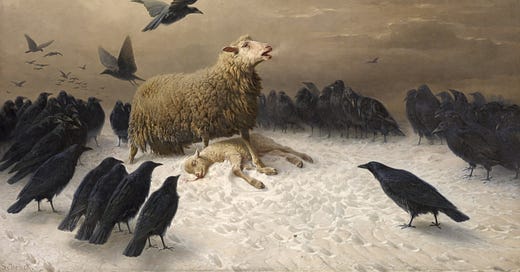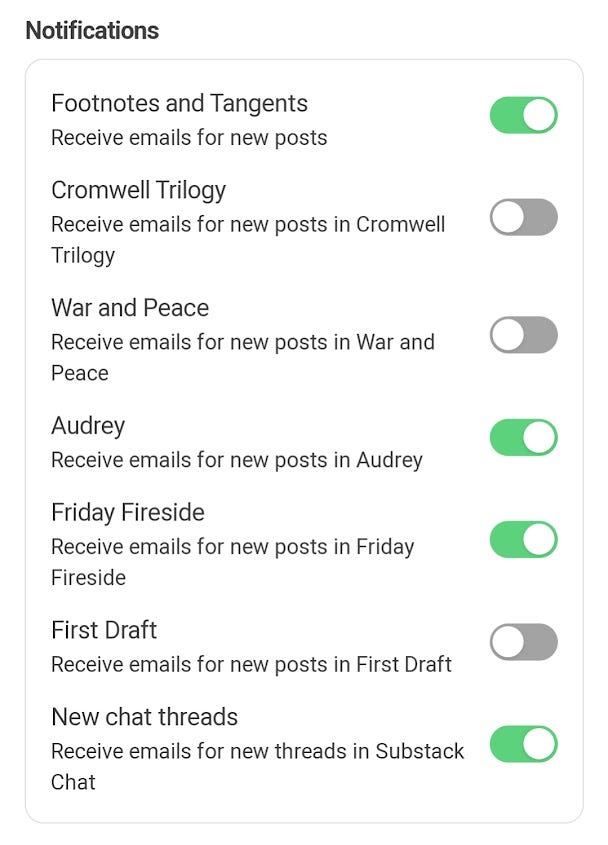Listen to this section:
1. First thoughts
Of all the chapters in this great book, this is the one I remember most clearly from the first time I read it.
We are in the winter of this story, the novel is nearly done. We have seen children grow up, men and women change as the world changes about them. We have cried for characters we despised on the first page, such is the strength of literature and of life.
By the time Denisov and Dolokhov swagger back into the story, I am bedazzled. In 1,000 pages, Tolstoy has drawn us through a kaleidoscope of human feeling. An encyclopedia of what it means to be alive.
There has been a lot to be angry and ashamed about. Men, incapable of seeing the goodness in themselves and in others. Wars, destroying lives. And peace, making its own cruel punishments for the body and the soul.
But for every shadow, there was the sun: a sky, a tree, a smile. A potato. Granting each of us a second chance. A way out, from war to peace. As long as there is life, there is hope.
We first met Petya as a little boy. And when his brother returned home from battle with his friend Denisov, Petya couldn’t contain his excitement. He charged into their bedroom, wielding one of their swords. “Is it yours?” He asked Denisov.
Last night, while Denisov slept, Petya listened to the sharpening of his own unused sabre. The night sang to a melody full of the richness of life, sometimes solemn, sometimes joyful and triumphant.
He’s afraid of life, as anyone sensitive to it must be. He sees the eye of the monster in the fire burning. The cold edge to Dolokhov’s laugh when he says it would be better to shoot the rabble.
Shoot the drummer-boy in his springtime. Shoot Pierre far from home.
But Petya is the soul of this story. Like Tolstoy, he believes we must be splendid in the dark. We must reach our hand out for the drummer-boy, even when we don’t know what to say. Hope for heroes, while the devils mount.
Come the dawn. a watery light, and the world made visible again.
Come death too soon. Gone joy, gone hope, gone life.
2. Character cheat sheet
Esaul Lovaysky the Third An esaul is a captain of the Cossacks. Two regiments of Cossacks were assigned to this guerrilla campaign. Tolstoy writes at length about Cossack soldiers in his novella The Cossacks. Here, the esaul provides a counterpoint to the wet and hungry Denisov:
he was not a man who had mounted a horse, but a man who was one with his horse, a being consequently possessed of twofold strength.
Tikhon Shcherbaty Not a Cossack but a resourceful and brave peasant scout. Denisov compares him to a plastun: a Cossack sharpshooter. He is the embodiment of courage. He’s not much to look at, but he’s cheerful and cunning, “the most indispensable man in their band.”
It’s interesting to compare him to Platon Karataev. Two peasant soldiers who represent opposing virtues and very different forms of bravery in the face of adversity.
Vincent Bosse The French drummer-boy’s name is interesting. It is derived from the Latin vincere, to conquer. An ironic name for a prisoner from the vanquished Grande Armée. The Cossacks have changed his name to Vesénny: vernal, springlike.
This is a beautiful transformation. Especially given the root of Rostov’s name (to grow). These are two boys in the springtime of their lives. One will not live to see his summer. As for Vincent, his life has been imagined in a graphic novel by Simon Spruyt, which you can read about here and here. You can also watch Simon painting one of his pictures of Vincent here:
3. Discussion Questions
Denisov and Dolokhov have different views on what to do with prisoners of war. Is this issue morally ambiguous or clear-cut? Do you sympathise with Denisov’s dilemma?
What does it mean to be a hero? Are there any heroes in these chapters?
How are brothers Nikolai and Petya Rostov similar and different? Does your time reading about Nikolai affect your reading of Petya?
4. Join the discussion
Let me know your thoughts in the comments. Next year, I will organise the discussion in the chat area of Footnotes and Tangents. This year, you can also connect with other readers in the group chat on Instagram and the Discord server. Let me know if you want to be added to either of these.
5. Choose your own adventure
Thank you for reading this War and Peace update. Below, there is bonus content for paid subscribers. These readers keep this show on the road, and I couldn’t do this without them.
Remember, you can pick and mix which of my letters you want to receive by turning on and off notifications on your manage subscription page. The default settings look like this:
6. Bonus notes and discussion
Keep reading with a 7-day free trial
Subscribe to Footnotes and Tangents to keep reading this post and get 7 days of free access to the full post archives.






